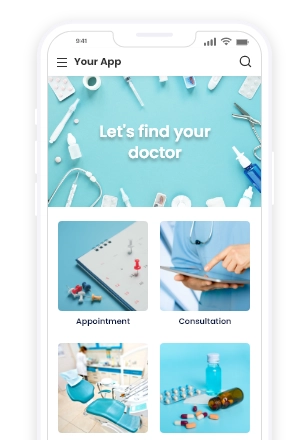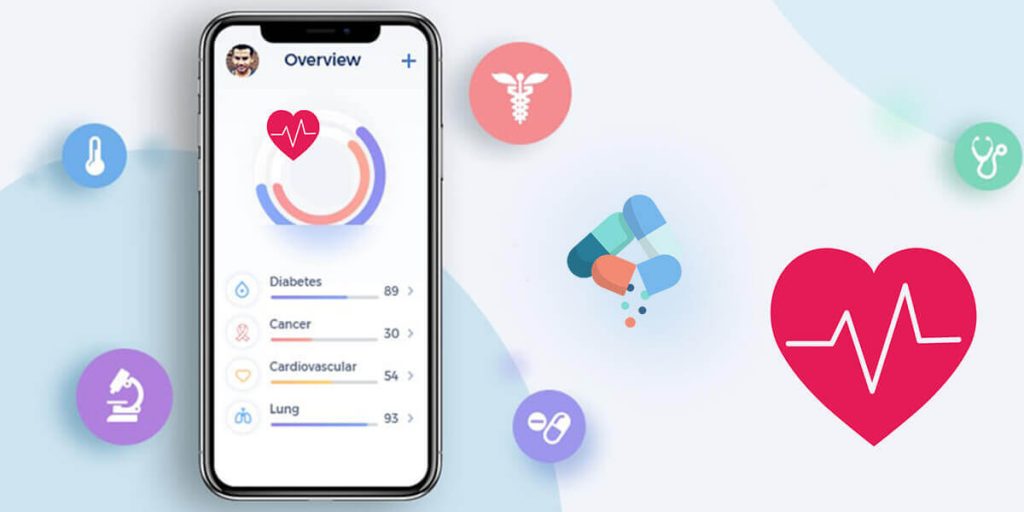Change Patient Care with a Mobile App for Clinics: Leading Features to Consider
Change Patient Care with a Mobile App for Clinics: Leading Features to Consider
Blog Article
The Future of Medical Care: Why Clinics Need a Mobile App Today
As the health care landscape proceeds to advance, clinics face mounting pressure to adapt to client expectations for better convenience and ease of access. The combination of mobile applications can serve as an important approach for improving individual engagement and streamlining procedures. By leveraging technology to boost communication and offer crucial solutions, clinics not just attend to existing needs yet additionally position themselves for future success. However, the effects of this shift prolong beyond plain operational performance; they might redefine person relationships and care delivery in extensive means. What might this improvement resemble for both individuals and facilities?
Changing Person Assumptions
As the landscape of medical care evolves, client expectations are undergoing a considerable improvement. Today's individuals are significantly seeking ease, ease of access, and customized care. With the rise of modern technology, particularly mobile applications, individuals now prepare for a seamless combination of medical care solutions right into their day-to-day lives. They desire the capacity to manage visits, accessibility medical documents, and connect with healthcare carriers with their mobile phones, showing a change towards a more aggressive strategy to health management.
Additionally, people are coming to be more notified and empowered, commonly looking into therapies and conditions on the internet prior to consultations. This enhanced understanding is paired with a demand for transparency in health care procedures, consisting of expense price quotes and treatment options. Therefore, providers are forced to adapt by taking on digital devices that improve the patient experience.
The assumption for effective and prompt communication has actually never been greater, with numerous patients taking into consideration responsiveness a vital part of quality treatment. mobile app for clinics. In this progressing landscape, health care organizations have to acknowledge these changing assumptions and leverage mobile applications to promote a more patient-centric technique, ensuring that they not only fulfill but surpass the standards set by today's educated customers
Enhancing Client Involvement

Mobile applications assist in interaction in between clients and health care suppliers, allowing real-time visit organizing, pointers for medicine adherence, and direct messaging features. These capabilities not only improve convenience however also build a feeling of liability amongst individuals. Moreover, mobile applications can supply academic material tailored to specific requirements, aiding individuals much better comprehend their problems and therapy alternatives.
The combination of gamification components within health care applications can additionally motivate individuals to involve in healthy and balanced actions, enhancing positive way of life modifications. Inevitably, enhancing client engagement with mobile applications leads to boosted health outcomes, higher person satisfaction, and a much more collaborative health care experience.
Simplifying Clinic Operations
Improving center procedures is crucial for enhancing process performance and maximizing patient care. The implementation of mobile applications can considerably minimize management worries, allowing healthcare companies to concentrate a lot more on person communications. By automating consultation organizing, person check-ins, and payment procedures, facilities can decrease wait times and boost total functional performance.
Mobile apps additionally help with real-time access to client records, enabling healthcare experts to make educated choices quickly. This immediacy not only boosts the top quality of treatment but additionally lowers the chance of mistakes connected with lost or dated info. Moreover, leveraging mobile innovation supports a more well organized strategy to handling client follow-ups and therapy strategies, making sure that no important steps are overlooked.
This permits for timely replenishment and aids avoid disruptions in person treatment due to equip shortages. By incorporating these functionalities into their day-to-day operations, centers can develop a more natural and reliable setting, inevitably leading to improved patient end results and satisfaction.
Improving Interaction Networks
Reliable communication is regularly cited as a keystone of top quality health care distribution. In today's hectic clinical setting, mobile applications can significantly improve communication channels between centers, individuals, and doctor. By integrating mobile apps into their procedures, facilities can facilitate real-time interactions, guaranteeing that clients get timely information concerning their consultations, test results, and treatment plans.
Mobile apps also empower clients to interact directly with their health care teams through protected messaging features. This direct line of communication use this link promotes a sense of interaction and enables for instant clarification of issues, which can bring about far better adherence to therapy methods. In addition, push notifications can remind people of upcoming consultations or medicine schedules, reducing no-show rates and improving overall health end results.

Remaining Affordable in Healthcare
In a quickly advancing see this here healthcare landscape, organizations have to prioritize technology and adaptability to maintain an affordable side. The integration of mobile applications into health care solutions is no more optional; it is crucial for clinics aiming to improve person engagement, improve procedures, and boost total solution delivery.
As people progressively count on electronic platforms for health monitoring, clinics that stop working to embrace mobile modern technology threat dropping behind. A properly designed mobile application can offer features such as visit scheduling, telemedicine consultations, and access to medical documents, providing clients with comfort and promoting commitment.

Competitors are also purchasing mobile services, so remaining ahead calls for constant improvement and remaining informed concerning technological advancements. Facilities must not only carry out mobile applications but likewise engage in normal updates and refinements. Inevitably, the successful assimilation of mobile modern technology will certainly distinguish forward-thinking medical care organizations site here and established the benchmark for patient-centric care in an electronic world.
Verdict
In final thought, the assimilation of mobile applications in centers is important to deal with the progressing landscape of individual expectations. Inevitably, the calculated application of mobile apps represents an essential step toward delivering customized and available health care, thus fulfilling the needs of today's empowered people.
Inevitably, boosting person involvement via mobile applications leads to enhanced health and wellness outcomes, greater client complete satisfaction, and an extra joint health care experience.Mobile apps additionally assist in real-time access to patient documents, enabling healthcare professionals to make informed choices swiftly. In today's fast-paced clinical atmosphere, mobile applications can considerably enhance interaction channels in between clinics, people, and healthcare service providers.Mobile applications likewise empower people to interact straight with their health care teams via safe messaging features. Eventually, the strategic application of mobile applications represents a crucial step towards supplying customized and obtainable health care, thereby satisfying the demands of today's empowered individuals.
Report this page